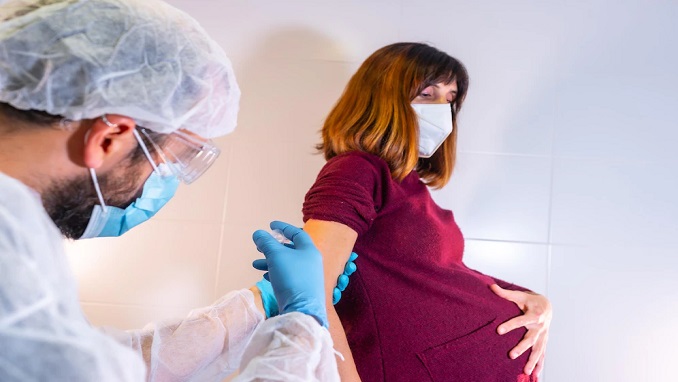On September 22, the Centers for Disease Control and Prevention (CDC) Advisory Committee on Immunization Practices (ACIP) voted 11-1 to recommend one dose of Pfizer’s Abrysvo vaccine to protect babies against RSV, making it the second pediatric immunization available in the fight against the virus.
Abrysvo is a maternal vaccine, meaning that it is given to mothers during pregnancy, as opposed to being given to infants directly. As such, ACIP recommends Abrysvo for pregnant people during 32–36 weeks of gestation, with seasonal administration. In the United States, the vaccine schedule would largely take place between September through January.
“While most infants and young children experience mild, cold-like symptoms, some infants, especially with their first infection, develop lower respiratory tract disease such as pneumonia and bronchiolitis (swelling of the small airway passages in the lungs), that often leads to an emergency department or physician office visit,” the U.S. Food and Drug Administration (FDA) explained when they approved AstraZeneca’s Beyfortus, another maternal RSV vaccine, in July.
Most (68%) infants are infected with RSV during the first year of life and nearly all (97%) are infected by age two, according to data presented to ACIP. Additionally, 2–3% of young infants will be hospitalized for RSV with hospitalization rate risk being highest during the first months of life. Most tellingly, 79% of children hospitalized with RSV had no underlying medical conditions.
What parents should know about Abrysvo
So, what do parents need to know going into the autumn and winter cold and flu season?
Abrysvo will likely be available late September/early October, according to ACIP. However, it may not be available in all pediatric settings this season, though efforts are currently underway to increase the number of birthing hospitals that will administer it.
Maternal RSV vaccines will also be covered by insurers, with no cost-sharing for expecting parents. Since Abrysvo is covered under the Affordable Care Act, as an ACIP-routinely recommended immunization, both private insurance and Medicaid have to cover the vaccine. For those uninsured, ACIP will soon vote on a Vaccines for Children resolution for maternal RSV patients <19 to ensure coverage. Currently, for people over 19, there is limited availability through the 317 program.
The challenge of vaccine disparity
Unfortunately, there is still a heightened instance of vaccine hesitancy among pregnant people—a lingering effect of misinformation during the COVID-19 pandemic.
In a survey conducted by ACIP researchers, 12% of pregnant people said they would accept no vaccine, while 49% said they would accept 1–2 vaccines. In addition, 9.9% of respondents were unsure, while 19.9% said they would get up to four vaccines.
It is paramount that healthcare providers help patients understand the science and risk associated with getting, or not getting, vaccinated. Studies continue to demonstrate that healthcare providers are pregnant people’s most trusted source of information on vaccines, and provider recommendation is a strong predictor of vaccination, ACIP explained.
The problem, ACIP presenters continued, is that one survey showed that two-thirds of obstetricians did not feel that providing information about routine childhood immunizations was part of their role.
Luckily, the CDC and others are taking steps to combat this issue early via formative research, patient and provider information, digital partnerships, and social media.
One thing is certain: medical innovation is making RSV burden a thing of the past. But now it is time for communities and healthcare providers to make sure that patients get the care and information that they need to live well.




